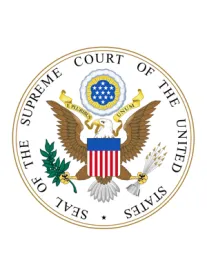The United States Supreme Court, in Unicolors, Inc. v. H&M Hennes & Mauritz, L.P., a recent 6-3 decision, found that innocent legal errors in copyright applications do not preclude copyright holders from taking advantage of the safe harbor provision of the Copyright Act, which protects registrants from having their copyrights invalidated due to inadvertent errors. The Court’s ruling therefore made clear that such errors in copyright applications—including both mistakes of law and mistakes of fact—will rarely be the basis for invalidation.
This issue made its way to the Supreme Court by way of a dispute between Unicolors, a Los Angeles based fabric and design company, and H&M, the Swedish retailer and fast fashion brand. Unicolors originally filed suit in 2016 for copyright infringement, alleging that H&M used Unicolors’ copyrighted geometric design on several of its garments without authorization. In turn, H&M contested the validity of Unicolors’ copyright registration, which purported to cover 31 different designs under one registration. When the district court rejected H&M’s contest following a jury verdict in favor of Unicolors, H&M appealed to the Ninth Circuit.
The Ninth Circuit overturned the verdict, finding that, in order to register multiple works under one copyright application, the registrant must publish those works as a single, bundled collection, which Unicolors failed to do. The Ninth Circuit also found that, even if Unicolors’ mistake was an inadvertent legal error, the safe harbor provision of the Copyright Act only excuses good-faith mistakes of fact, not law, and that Unicolors’ copyright could therefore be invalidated as a result of its mistake.
The Supreme Court expressed sympathy for copyright applicants, noting that creators, such as “novelists, poets, painters, designers, and others without legal training,” have to grapple with the complexities of the Copyright Act in order to gain copyright protection of their works. Given these complexities, the Court found that creators should not be punished for inadvertent legal errors in their applications. In other words, the Court disagreed with the Ninth Circuit and found that the safe harbor provision does not distinguish between mistakes of law and mistakes of fact.
The recent decision is a big win for copyright holders nationwide. However, the Court also made clear that the safe harbor provision leaves no room for willful blindness. Thus, despite the fact that the Court’s ruling on its face appears to expand copyright protections to artists who frequently prepare and file applications without counsel, it also functions as a reminder to proceed with caution in doing so.


 />i
/>i

